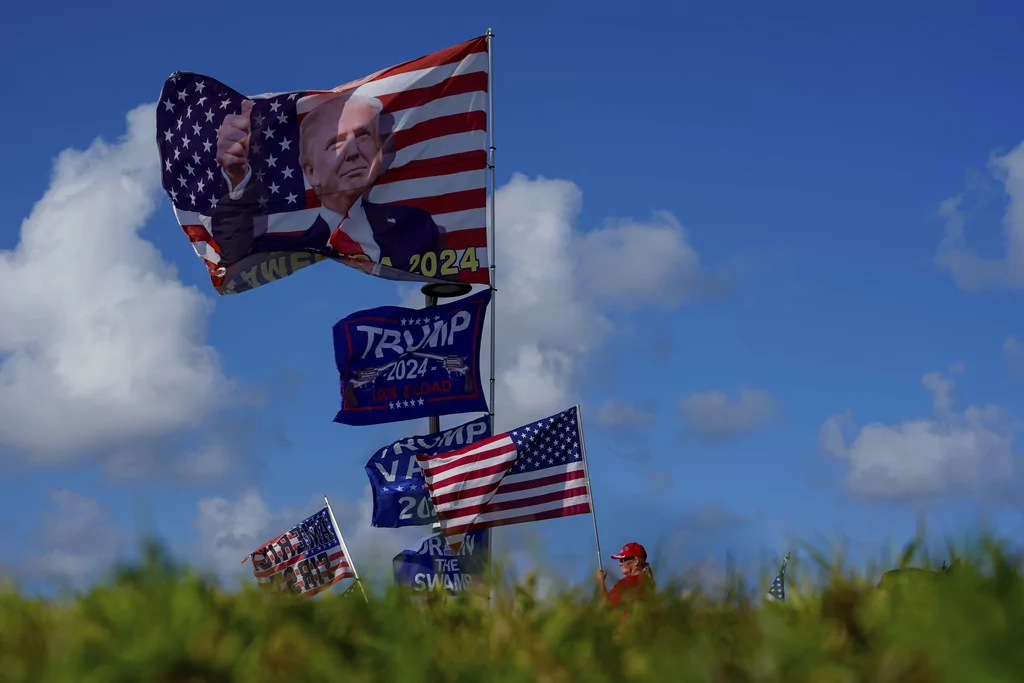

Black Friday may not be the only day with major deals this year as retailers have indicated shoppers could see massive sales ahead of tariffs expected to be implemented on goods from Canada and Mexico by the incoming Trump administration.
This week, President-elect Donald Trump threatened to impose a 25% duty on all products coming in from the two countries, affecting anything from oil and gas to technology, auto parts, furniture, and alcohol. Trump said he would impose the tariff if Canada and Mexico fail to stop drugs and illegal immigrants from entering the United States at the borders.
Experts have already begun to warn that such a tariff would trigger price spikes on items sold within the U.S., placing the cost burden on consumers rather than exporting nations. Economists with the Peterson Institute for International Economics previously estimated that a 20% tariff would raise prices for the average American family by around $2,600 annually.
The National Retail Federation also estimated that even from just a 10% or 20% import tariff, prices of clothing could jump between 12.5% and 20.6% — costing consumers tens of billions of dollars every year.
“If the tariffs go into effect at the levels that have been spoken about, retailers will have no choice but to put up prices,” GlobalData Managing Director Neil Saunders told Axios. “So one of the things they will have to do is pass some of those cost increases over to consumers in the form of higher prices.”
Several chief executives of major retailers such as Walmart, Lowes, Autozone, and Columbia Sportswear have also admitted that the expected tariff would raise prices for customers, as the duty would likely increase the companies’ production costs.
In what appears to be an attempt to offer some advanced relief to shoppers, many retailers are launching pretariff sales on their products.
Earlier this month, online furniture retailer Finally Home Furnishings warned the prices of its items would double as a result of Trump tariffs.
“Pre-Tariff sale! This is not a drill,” the seller wrote on Facebook.
Similarly, Maryland-based customer fishing rod seller J&J Sports Service also urged its customers to “buy now.”
“Our rods are built here but the supplies come from other places Japan in general. We will hold the line as long as we can, But we can say for certain this may be the last ‘sale’ you may see,” the retailer wrote in a social media post.
Small business owners and artists have also turned to offering sales in the coming weeks. Etsy Seller House of Buzz also took to Facebook this month to warn its products may not be available after January.
“I’m having a pre-tariff ‘sale’ on all my stock bamboo frames from now until when they actually kick in,” the seller said. “Hurry and get them at their current prices before they’ll be both unaffordable and unobtainable in the future.”
A custom sticker designer also warned customers via TikTok that his prices may rise in the new year, saying he was running a 25% sale before any tariff would go into effect.
Additionally, some financial experts are urging consumers to take advantage of existing sales, such as Black Friday deals. Electronics, clothing items, games, and more are already seeing massive markdowns this week.
WalletHub analyst Chip Lupo told Newsweek, “Now is the time to snag these savings before new tariffs take effect.”
CLICK HERE TO READ MORE FROM THE WASHINGTON EXAMINER
With just over 50 days remaining before Trump takes office, some shoppers are already taking action to avoid higher prices.
A recent survey conducted by The Harris Poll found that around 44% of people in the U.S. are planning to make certain purchases before Trump takes office in order to avoid projected higher prices, according to the Guardian. Even more, around 62%, believe they will have to tweak their own financial plans for next year if the tariff is imposed.




